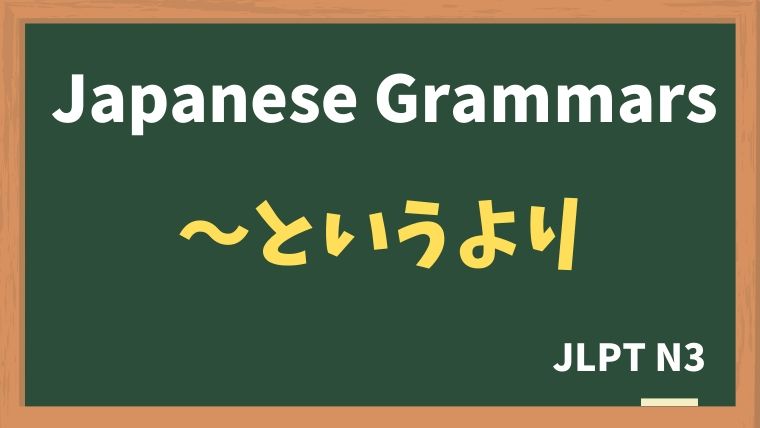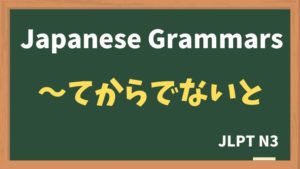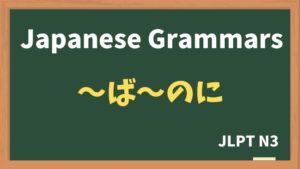
Explanation:〜というより
fa-check-circleMeaning
"〜という言い方でもいいが、・・・と言うほうがあっている言い方だ"
"it's possible to say X, but compared to X, statement Y is more fitting."
Used in Japanese to compare two things, suggesting that one thing is more accurate or appropriate than the other. It is often translated as "rather than" or "more than."
fa-check-circleForm
V(plain form)+ というより
イA(plain form)+ というより
ナA(plain form)+ というより
N(plain form)+ というより
fa-check-circlePoints
- Comparative Nature: "〜というより" is used to indicate that one description or characteristic is more fitting or accurate than another. It often implies that the second description is not entirely incorrect but less precise.
- Structure: It is used to compare two things, where the first part (before "というより") is a description that is corrected or refined by the second part (after "というより").
- Context of Usage: This expression is useful for correcting or modifying a previous statement or impression by offering a more precise or fitting description.
fa-check-circleJLPT Level
N3
Sample sentenes
このアニメは子供向けというより、大人向けだ。
This anime is more for adults than for children.
今日は涼しいというより、寒いぐらいだ。
It's not just cool today, it's actually quite cold.
私はブログを趣味としてというより、仕事としてやっている。
I blog as a job rather than just a hobby
マイケルさんはかっこいいというより、おしゃれだよね。
Michael is more stylish than handsome.
友達に裏切られて、悲しいというより残念だ。
I feel more disappointed than sad about being betrayed by my friend.
アンナさんはかわいいというより、きれいだよね。
Anna is more beautiful than cute.
彼女のスタイルはおしゃれというより、個性的だ。
Rather than being fashionable, her style is more accurately described as unique.
Vocabulary
| Japanese |
English | |
| 涼しい | すずしい | cool |
| お洒落 | おしゃれ | fashionable |
| 裏切る | うらぎる | to betray |
| 個性的 | こせいてき | unique |






